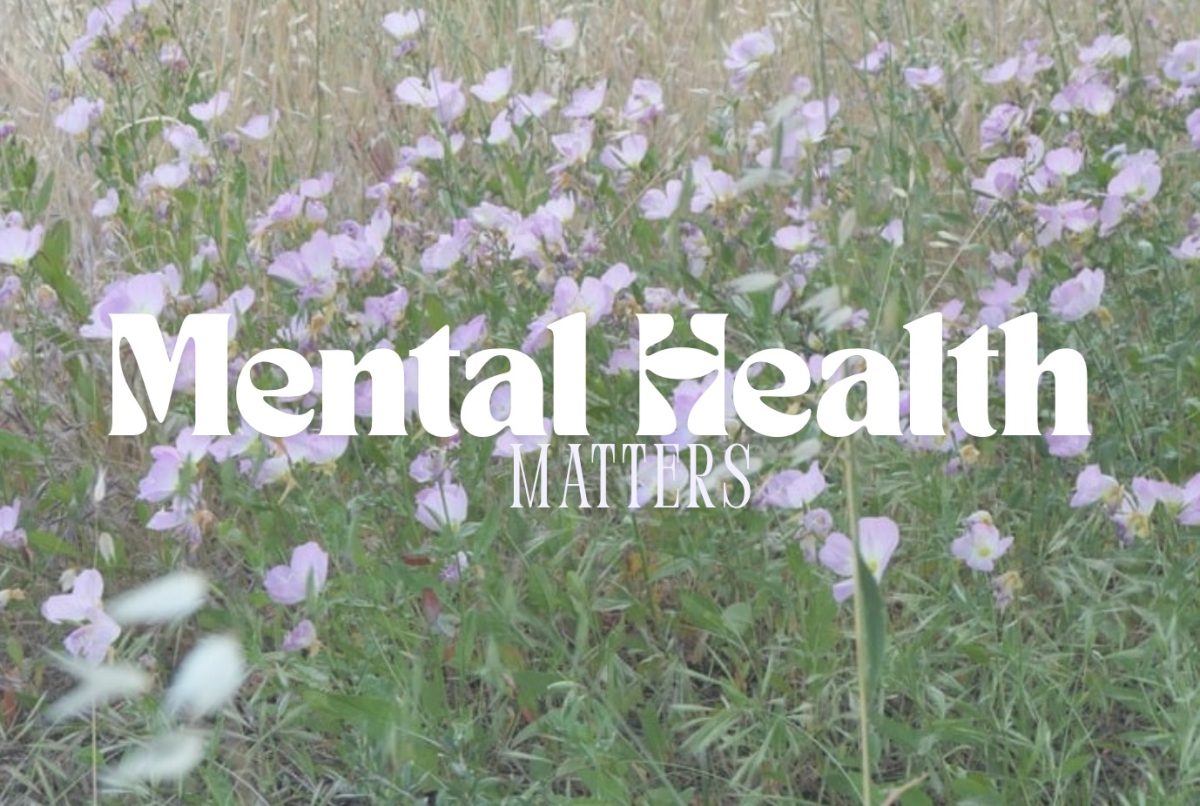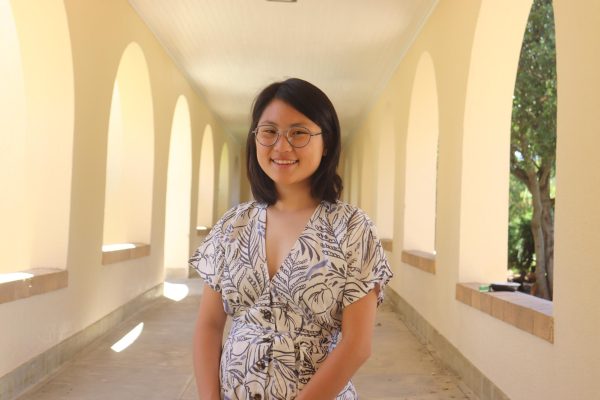Opera is often seen as an outdated art form “for old people” by Gen Z students. Evolving music tastes, perceived exclusivity, outdated themes and productions and the rise of more accessible entertainment options have rendered opera unapproachable for the average person. In a 2024 study conducted by OPERA America, they found that of opera attendees, 72% were long time attendees and 12% were new goers. Accounting for age, the majority of those who frequented the opera were over 55. For many students, the demographic often feels alienating.
“I’ve only been once, and everyone except for my sister and I were 60+,” an anonymous senior said.
In addition, many students believe that simply opera is not relevant to their lives. As one anonymous freshman commented, opera was not relevant to them because it was “stupid and boring.” Paly history and AP research teacher Mary Sano pushes back against that idea. She believes that opera is very relevant and that young audiences simply are not given the chance to connect with the medium.
But with Gen Z’s diminishing attention span, Sano feels that young people have less and less ability to be patient with opera, which may last anything from three hours, to a whopping five hours and 50 minutes in the case of Wagner’s “Die Meistersinger von Nürnberg.”
In her study, University of California Irvine professor of informatics Gloria Mark found that the average attention span had significantly decreased with the rise of technology, being around two and a half minutes in 2004, and measuring to be around 75 seconds in 2012.
“You have to have the ability to sit there and immerse yourself and just be okay with sitting there and being patient,” Sano said.
However, some students are rejecting this trend, finding passion in the art of both making and attending opera. Kat Heller, a sophomore at Homestead and prolific vocalist, often attends operas with her family.
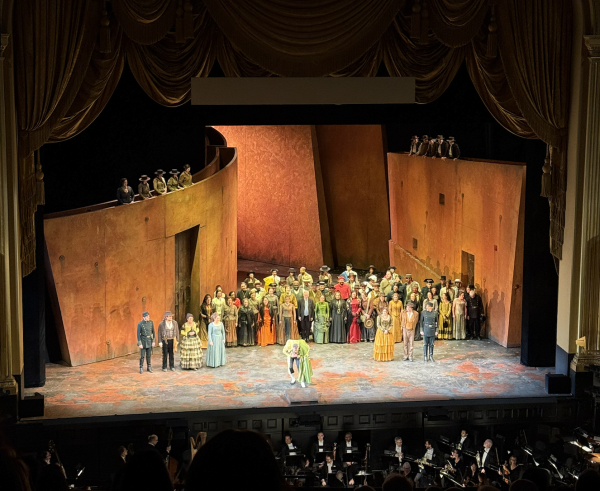
“[Opera] is a connection to something that I love, which is music and a connection to my grandmother because she was a semi-professional opera singer,” Heller said.
Heller recommends that high school students interested in exploring opera for the first time attend Opera San Jose and see a show in English. She believes that reading the storyline or synopsis beforehand, as it can help students better focus on and enjoy the performance rather than getting lost in the many twists and turns of an operatic production.
“One of the biggest misconceptions young people have about opera is that it doesn’t mean anything,” Heller said. “It’s like a painting — it’s an older art form, but it still has meaning. And I don’t think that’s boring.”
Many young audiences unknowingly listen to opera in their day-to-day lives. The hit rock musical “Rent” is loosely based on the Italian opera “La Bohème.” The movie “Apocalypse Now” uses Wagner’s “Ride of the Valkyries,” to back a helicopter attack. “Five Nights at Freddy’s” uses the song “Toreador March” from the opera “Carmen” as its main theme. And Beyoncé, who was trained in classical singing, utilizes a modified version of “Caro Mio Ben” as a bridge in her song “DAUGHTER.”
Because of these trends, Olga Moudry, a professional opera singer who has performed at the Bolshoi theater in Moscow, believes that opera has not lost its meaning and continues to be present in other mediums.
“Opera arias and performers are easily available but you have to know what to look for,” Moudry said. “Pop singers claiming to be opera singers are playing a really good role in introducing young generations to opera. A lot of opera music is used in commercials.”
Moudry recommends watching “The Marriage of Figaro” or “The Barber of Seville” for new opera goers. She observes that finding good singers for those shows is usually straightforward.
And despite its roots in tradition, opera is evolving. New works written in the style of “opera” are being produced. Initiatives such as “Works & Process” at the Guggenheim introduce up-and-coming performances to new generations. These works, which often blend contemporary styles such as pop or reggae (in the case of the developing opera “This House”), bring into question the essence of what opera is.
“Why is the musical Hamilton not an Opera?” Moudry said. “If we keep the meaning of the word ‘opera’ [deriving from the latin for] creation and work, then Hamilton is an Opera. If Opera is only some stuff written many years ago and some new stuff written in a style from many years ago, then [opera] is really difficult to communicate to new generations.”
Music evolves and keeps on evolving while opera keeps with tradition in terms of vocal technique and general styling. Moudry believes that by defining opera within the limits of what is considered traditional, limits are placed on the ability to captivate young audiences.
“Opera is trying to engage young generations, but there is a limit to what they can do,” Moudry said. “Music evolves, rhythm evolves. Language evolves. Opera keeps the tradition.”
However, other opera lovers are more optimistic on its ability to engage young audiences.
“Opera is inherently traditional, especially with the classical training required to perform in one,” an anonymous senior said. “[But] it’s evolving — people are writing operas about subjects important to them.”
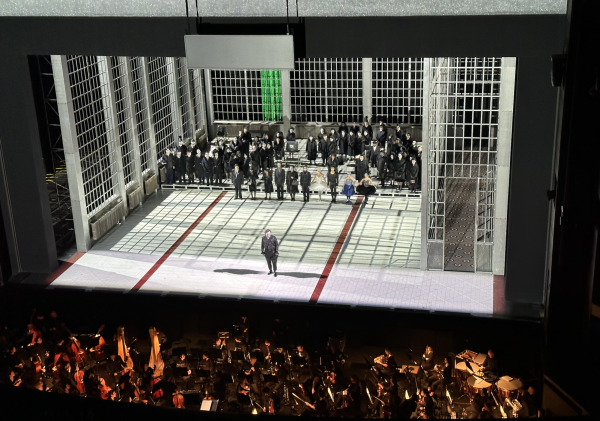
In addition, productions and stagings continue to advance, bringing modern technology, costume and concept into the mix. A recent performance of Ambroise Thomas’s opera “Hamlet” at the Opéra Bastille in Paris utilized shocking cinematography, surreal projections, a saxophone improvisation and a cast of characters residing on the moon to bring new acclaim to the otherwise traditional script.
Ceira Motoyama, a sophomore at Lynbrook, believes these contemporary stagings are really important to the relevance of the opera because they serve as a new method and lens of interpretation.
“A piece can’t survive by staying static,” Motoyama said. “The perspective of the characters, plot and themes must adapt to the times. Stagings are a way of showing the modern audience the ancient while connecting it in a meaningful way to their lives.”
By allowing audience members to see aspects of their own lives upon the stage, Motoyama believes that they may also feel less alienated from the medium.
Some contemporary stagings even modify the opera to suit modern times. Heller enjoyed San Jose Opera’s rendition of “Bluebeard’s Castle,” which ended not with Bluebeard’s current wife Judith joining his other three wives in a state of near death in his basement, but (spoiler alert!) with the various wives taking it upon themselves to kill Bluebeard.
“It’s a very female power moment,” Heller said. “I really appreciate that even though it’s an opera, which people think is for old people and old traditions and old norms, it has that modern feel that’s like, ‘Ladies don’t need to be locked away by their husbands.’”
Similarly, Sano recalls a similar production of “Pygmalion,” where Galatea (the female lead) is empowered instead of commodified. She compares the experience to that of a traditional staging of “Madam Butterfly,” which perpetrated orientalist themes and objectified women.
“‘Madam Butterfly’ was a horrible story in terms of how it portrayed women and the choices [they] made,” Sano said. “It did not play well.”
But as more newcomers begin to flock to opera houses, there is hope for a new age of opera. According to OPERA America’s “new audiences” survey, new-to-opera attendees are younger, more ethnically diverse and have a broader range of income.
“There’s a misconception in our society at large [that opera is] meant only for wealthy white people,” Sano said. “In that way, society at large puts some limits on who’s allowed to go.”
Sano also notices a greater number of ethnic audiences attending shows where their ethnic group is represented on stage. Ultimately, opera is for all age groups and audiences. Moudry believes that it just isn’t promoted that way.
“[My husband and I] showed Opera cartoons to our daughters when they were little,” Moudry said. “This year my 24 years old daughter started attending Opera productions in SF Opera. (…) She would talk about these productions for days. Opera is not dead yet.”


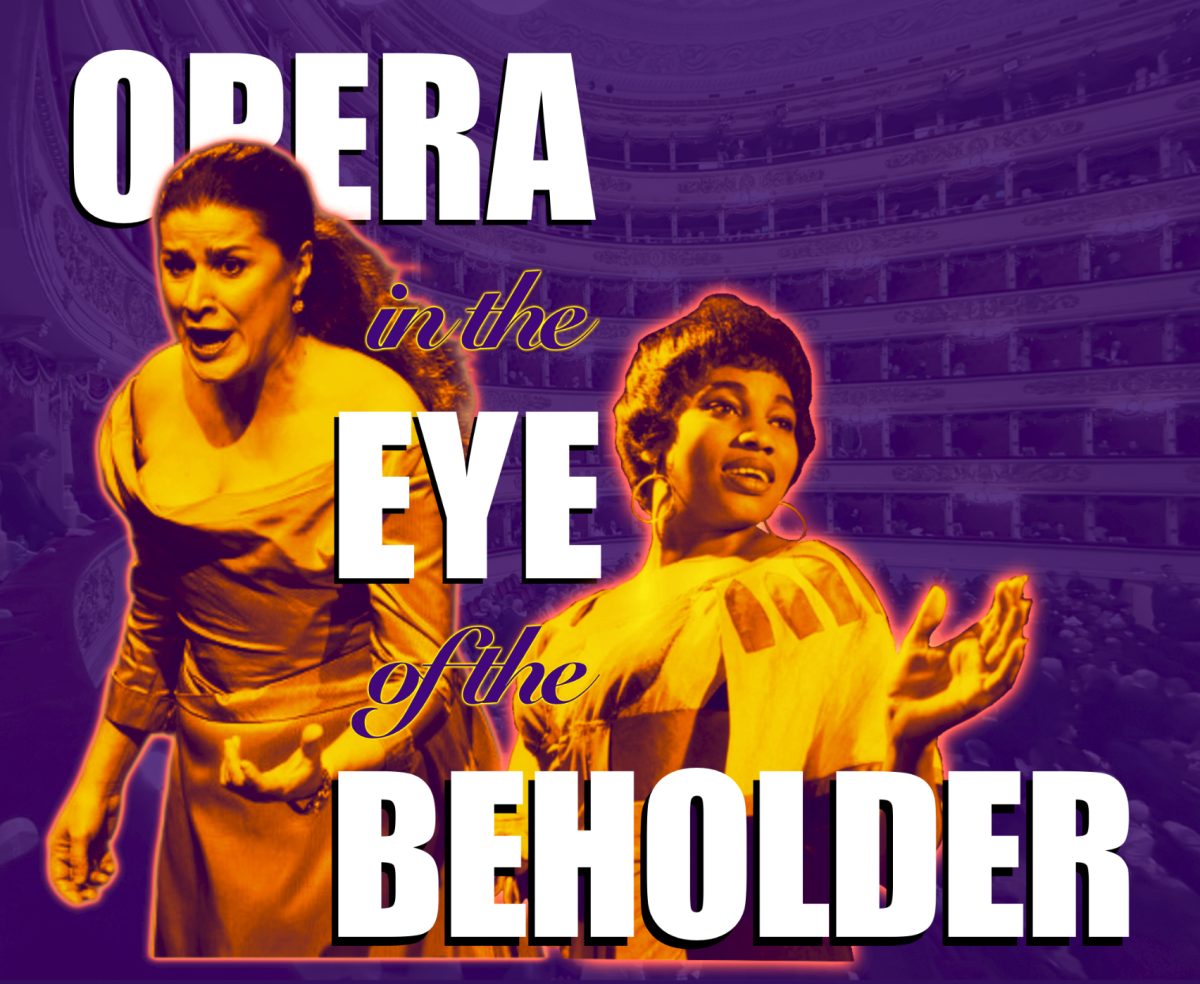

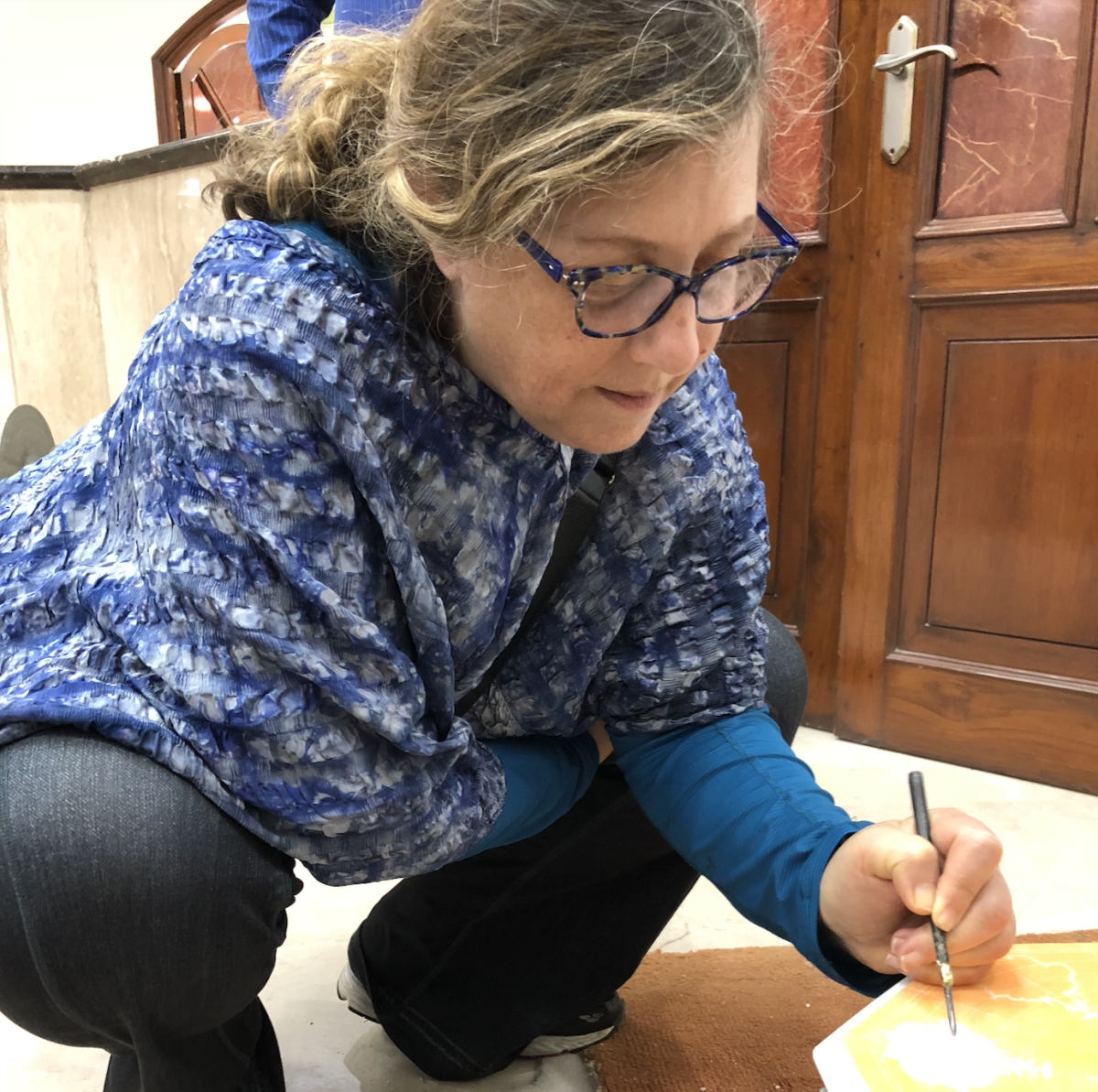
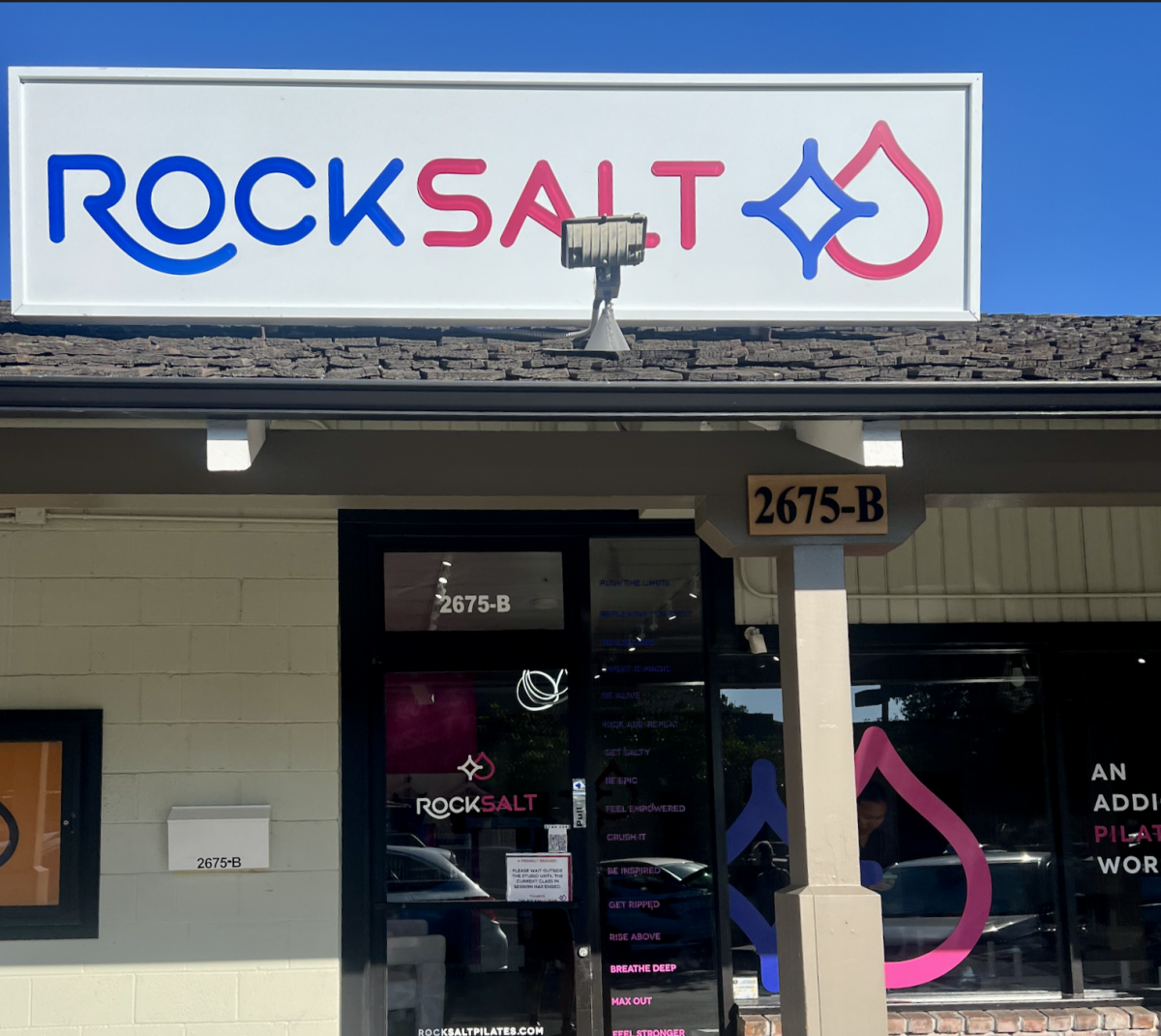
![UNSUNG HEROES — Fred Korematsu, Karen Korematsu and Aiko Herzig-Yoshinaga are awarded the Asian American Justice Medal to recognize their fight for justice following the incarceration of Japanese Americans during World War II. In addition, scientists Shuji Nakamura, David Ho, Tsoo Wang, Mani Menon and Chih-Tang “Tom” Sah receive the Asian American Pioneer Award. "[As a scientist,] it is crucially important to be able to communicate your work and your discoveries to [not only] other scientists, but also to the general public," Ho said. Photo by Talia Boneh](https://cmagazine.org/wp-content/uploads/2025/07/useee-1200x800.jpg)
